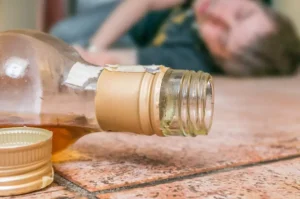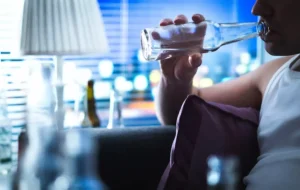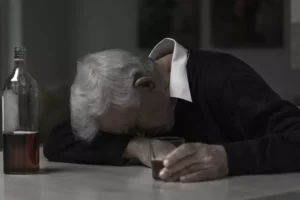Delirium Tremens StatPearls NCBI Bookshelf
A high fever, hallucinations, and heart disturbances are all reasons to seek immediate help. The symptoms may worsen over 2 to 3 days, and some milder symptoms may persist for weeks in some people. They may be more noticeable when you wake up with less alcohol in your blood.
Symptoms of alcohol withdrawal
Lastly, researchers have identified a condition called post-SSRI sexual dysfunction (PSSD), where someone experiences sexual side effects after they stop using SSRIs. Although it doesn’t occur in everyone, some people experience PSSD months after stopping long-term SSRI use. A 2020 study looked at experiences of PAWS after stopping antidepressants based on self-reported symptoms on an internet forum. These experiences were recorded 5 to 13 years after stopping antidepressants. According to American Addiction Centers, anecdotal evidence indicates that PAWS symptoms can last 2 years or longer after someone stopped drinking alcohol.

Mild Symptoms
It’s typical for withdrawal symptoms to begin within hours to a day or two after you have your last drink. Symptoms are often at their alcohol withdrawal syndrome symptoms worst around 24 to 72 hours after you stop drinking. Mild withdrawal symptoms often begin within 6 to 12 hours after your last drink.

More on Substance Abuse and Addiction
Following alcohol cessation, alcohol withdrawal syndrome typically presents as minor symptoms such as mild anxiety, headache, gastrointestinal discomfort, and insomnia. This syndrome can further progress to severe manifestations, such as alcohol withdrawal delirium, which poses significant diagnostic and management challenges. Mild symptoms may progress to alcohol hallucinosis, characterized by visual or auditory hallucinations that usually subside within 48 hours after alcohol cessation.
- You may also experience periods of dry heaving without vomiting.
- Genetic, psychological, social and environmental factors can impact how drinking alcohol affects your body and behavior.
- People who experience severe withdrawal symptoms or DTs may require hospitalization or intensive care unit (ICU) treatment during alcohol.
- If you think you’re experiencing PAWS and your symptoms are becoming hard to manage, a doctor or healthcare professional might be able to help.
- Unhealthy alcohol use includes any alcohol use that puts your health or safety at risk or causes other alcohol-related problems.
- But that number is much lower for people who get medical care for their symptoms.
Alcohol Withdrawal Timeline
- In extreme cases, the brain can have problems regulating breathing and circulation.
- It also provides an overview of the alcohol withdrawal timeline process and when to discuss your drinking with your healthcare provider.
- You can go straight into’ fight or flight’ mode as the alcohol leaves your system, even when there’s no danger present.
- The first goal of treatment is to keep you comfortable by managing your symptoms.
- More severe withdrawal symptoms may also include fever, convulsions, and delirium tremens (DTs).

